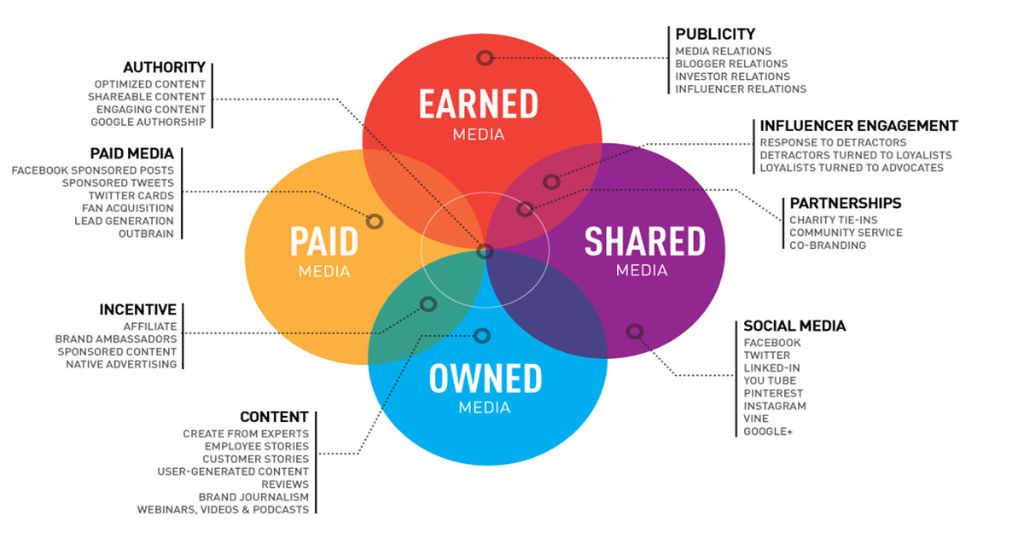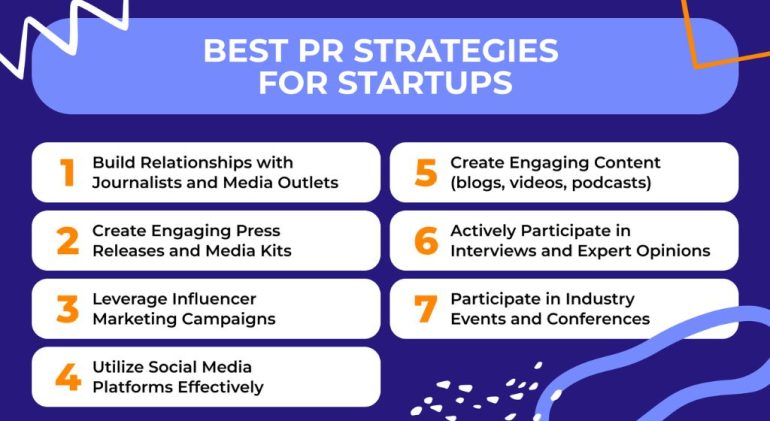In the competitive world of tech, startups are constantly vying for attention. Whether you’re pitching a new app, launching a SaaS product, or disrupting an industry with a bold new idea, public relations (PR) can play a pivotal role.
It can help in gaining visibility, building credibility, and attracting users, investors, and talent. But unlike large corporations with massive budgets, startups need to be nimble, strategic, and smart about how they manage their PR efforts.
Here are the best PR strategies for tech startups looking to break through the noise and build a strong brand presence.
1. Define Your Brand Story
Before reaching out to the media or publishing content, your startup must be crystal clear about its core narrative. What problem are you solving? Why does your solution matter now? How are you different from competitors?
A compelling story that includes your mission, origin, and impact is essential. This story should appeal not only to investors or customers but also to journalists looking for fresh, human-centered tech angles.
Tip: Focus on simplicity. Avoid jargon, and articulate your value in a way a non-technical person can understand. If your grandmother can’t explain it, it’s too complicated.
2. Build Relationships with Journalists Early
Don’t wait until you need coverage to start talking to reporters. PR is about building long-term relationships, not just cold-pitching your launch. Identify journalists who write about your niche—AI, fintech, edtech, etc.—and follow their work.
Engage with them on social media, comment thoughtfully on their articles, and show that you value their insights. When it comes time to pitch your product or story, they’ll be more likely to listen if they recognize your name and know you’ve done your homework.
Tip: Keep a journalist contact list organized by beat and publication, and update it regularly.
3. Leverage Thought Leadership
Establishing the founders or executives as thought leaders is one of the most effective ways to gain credibility. This can take the form of writing op-eds, contributing guest posts, speaking on panels, or participating in podcasts.
When founders speak authentically about industry trends, ethical challenges, or their entrepreneurial journey, it not only promotes the brand but positions them as experts. People trust people, especially in tech, where transparency and insight are highly valued.
Tip: Use platforms like Medium, LinkedIn, or niche publications to publish original, thoughtful content under your CEO’s name.
4. Use Data to Tell Your Story
Tech startups often have unique access to interesting data—user behavior, market trends, or industry inefficiencies. Packaging proprietary data into press releases, infographics, or whitepapers can attract significant media attention.
Reporters are always on the lookout for fresh statistics to back up stories. If your startup can provide that, you become a go-to resource, especially if your data uncovers a surprising trend or challenges common assumptions.
Tip: Visualize data with clean, shareable charts and offer downloadable reports to maximize value.
5. Create a Strong Press Kit
Many startups miss out on coverage because journalists simply don’t have the information they need. A well-designed press kit should include:
-
A company overview
-
Founders’ bios and headshots
-
High-resolution logos and product screenshots
-
Key statistics and milestones
-
Contact information
This should be easy to find on your website (typically under “Press” or “Media”) and regularly updated.
Tip: Host your press kit in a Google Drive or Dropbox folder with clearly labeled files. Make it journalist-friendly.

6. Time Your Launch Strategically
For startups, timing is everything. A product launch during a major tech event (like CES or Web Summit) or just before a related industry trend peaks can help amplify your story.
Avoid announcing on Fridays, holidays, or when major tech giants are making news (Apple product launches, Meta earnings calls, etc.). You want a clear window when reporters and readers will pay attention.
Tip: Use tools like Google Trends or media monitoring software to see what’s hot in your niche—and plan your outreach accordingly.
7. Use Product Hunt and Other Community Platforms
Platforms like Product Hunt, Indie Hackers, Hacker News, and Reddit are powerful PR tools for tech startups. Launching on Product Hunt, in particular, can drive a wave of early adopters, feedback, and media coverage—if done correctly.
Build buzz before your launch by engaging with the community, teasing product features, and preparing clear, benefit-driven messaging. Engage with commenters and answer questions post-launch.
Tip: Find a respected “hunter” (Product Hunt user who submits products) to submit your launch—it adds credibility and increases visibility.
8. Focus on Micro-Influencers and Niche Blogs
While getting into TechCrunch or Forbes is great, smaller, more targeted publications and influencers often drive better engagement. A well-read blog in your industry or a micro-influencer with 5,000-10,000 engaged followers can provide higher conversion rates and more authentic exposure.
These outlets are also more accessible to startups and often more willing to feature new or untested products.
Tip: Pitch exclusive angles to niche outlets—they’ll appreciate the attention and may give your startup more real estate in their story.
9. Be Consistent and Proactive
Many startups go quiet after their initial launch buzz fades. But PR is a long game. Share regular updates: new hires, funding rounds, user milestones, partnerships, or social impact efforts.
Even small wins can be turned into content or local media pitches. Over time, this builds a steady drumbeat of visibility and keeps your startup on the radar.
Tip: Create a PR calendar that aligns with your product roadmap and business milestones.
10. Prepare for Crisis Communication
Even early-stage startups need a basic crisis communication plan. Whether it’s a product outage, data breach, or backlash from a marketing misstep, how you respond matters.
Have key messages ready, designate a spokesperson, and communicate openly and quickly. Owning your mistakes and outlining how you’ll fix them often earns more trust than silence or deflection.
Tip: Draft “holding statements” in advance—short, professional responses you can release while you gather more information.
For tech startups, effective PR is about telling the right story to the right people at the right time. You don’t need a massive budget to make a big impact—you just need strategy, authenticity, and persistence.
By focusing on thought leadership, building media relationships, using data creatively, and staying proactive, startups can punch well above their weight in the PR game. In an industry where attention is currency, mastering PR early on can make all the difference in your startup’s growth journey.

